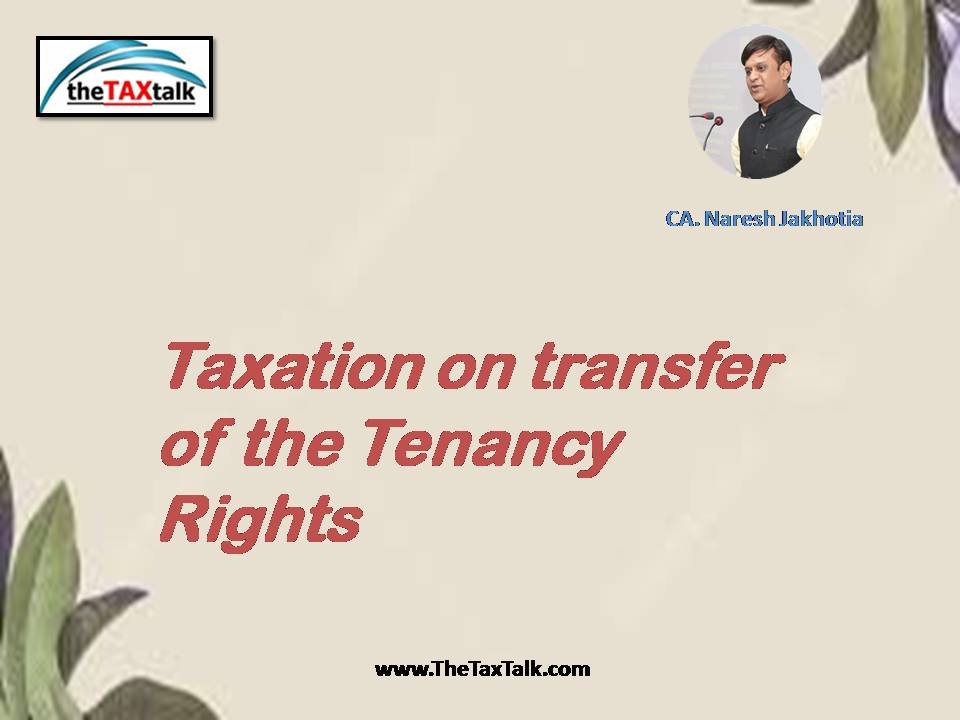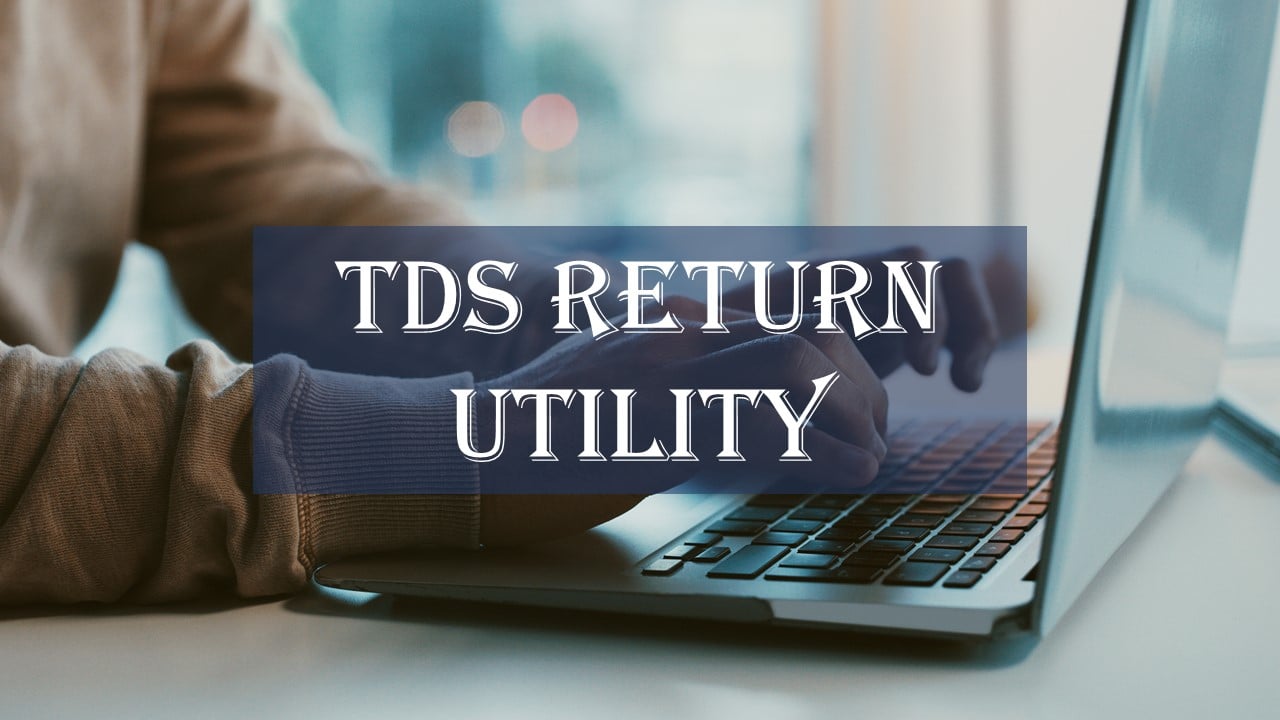![]()
Taxation on transfer of the Tenancy Rights
Query 1]
We are living in a house property taken on rent long back by my father. The house was taken after giving some deposit (Pagdi) in cash way back in 1962. My father expired in 2017. Court case was filed by the original owner which is now continued by his legal heir. We, as legal heirs, are also now added in the court case. The landlord is now planning to sell the land to the builder who has approached us with an offer of around Rs. 1.25 Cr for vacating & handing over the peaceful possession of the premises. My questions are:
- Whether the amount received from the builder is liable for income tax in our hands? We are two brothers & one sister. The amount to be received would be separate for each person. I would be receiving Rs. 40 Lakh whereas my brother would be receiving Rs. 50 Lakh & my sister would be receiving Rs. 35 Lakh. The difference in amount by each person is on account of various other reasons.
- If yes:
Whether stamp duty valuation of the property is any way relevant for determining the tax liability? Whether we can invest the amount in bonds issued by REC for saving tax? Whether the 2001 value would be relevant in our case as well? Can we get a deduction for that value as well? How can we save tax on this amount through any other mode? [kish*********@gmail.com]
Opinion:
- A person has to pay capital gains tax on the profits realised on sale/transfer of a capital asset. The same may be Long Term Capital Gains (LTCG) or Short Term Capital Gain (STCG) depending on the holding period of the asset sold.
- “Tenancy Right” in a property is also capital assets & so the amount received on termination/transfer/surrender of the tenancy right is liable for capital gains tax. In your case, since the tenancy rights have a holding period of more than 3 years, it will be treated as Long Term Capital Assets.
- The tenancy rights were acquired by your father prior to 1st April 20001 and so you have an option to adopt the Fair Market Value (FMV) of the tenancy right as on 1st April 2001 as cost of the tenancy rights and apply the cost inflation index on such cost to compute the amount of capital gains. The question arises as to how to get the FMV of the tenancy rights? Possible option could be to get a valuation certificate from the registered valuer. The difference between money received and indexed FMV would be Long Term Capital Gains on which tax is payable at flat 20.80% (including health & education cess). Each legal heir can save tax on such LTCG by claiming an exemption under section 54F.
- Section 54F provides exemption from tax if the capital gain arises from transfer of any long term capital assets other than residential house property. For claiming exemption u/s 54F, taxpayers have to invest net sale consideration towards purchase/ construction of another house property within a prescribed time frame as under:
a] For purchase of house property:
One year before or two years after the date of sale.
b] For Constructions of house property:
Three years from the date of sale.
There are two important conditions which are important while planning to claim an exemption u/s 54F as under:
a) Taxpayers should not own more than one house property, other than the new asset, on the date of earning LTCG.
b) Taxpayers should not purchase any residential house, other than the new asset, within a period of two years after the date of transfer of original asset or construct any other residential house, other than the new asset, within a period of three years after the date of transfer of the original asset. - Tax saving option by investment in specified bonds:
a) Option to save tax under section 54EC by investing the amount in specified bonds issued by REC/PFC/IRFC is available on transfer of land/building only and not on transfer of any other capital assets.
b) Transfer of rights in land or building is not equivalent to transfer of land/building and so the option to save tax U/s 54EC is not there in your hands. - Relevance of stamp Duty Valuation:
Stamp duty valuation (i.e., ready reckoner value) is relevant only if the land or building or both is transferred. In your case, you are transferring the rights in the land/building and so strictly the law related to taxation on the basis of its stamp duty valuation is not applicable.
Query 2]
Under what sources of income, the losses from the house property income arising after considering the interest on home loan u/s 24(b) can be set off ? Can it be set off against the ‘short term capital gains’ on equity shares in the same year? [rpgupta04@yahoo.co.in]
Opinion:
- There are few losses where freedom of Set Off against all other income exists. Loss under the head “Income from House Property” is one such source.
- Any loss under the head “Income from House property” can be set off against income under all other heads of income. It can be set off not only against income from Short Term Capital Gain but also against long term capital gain, salary income, business income or income from other sources.




